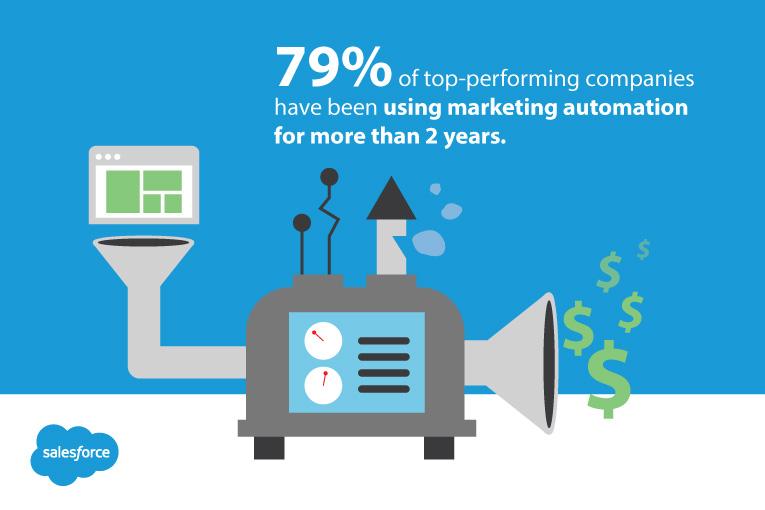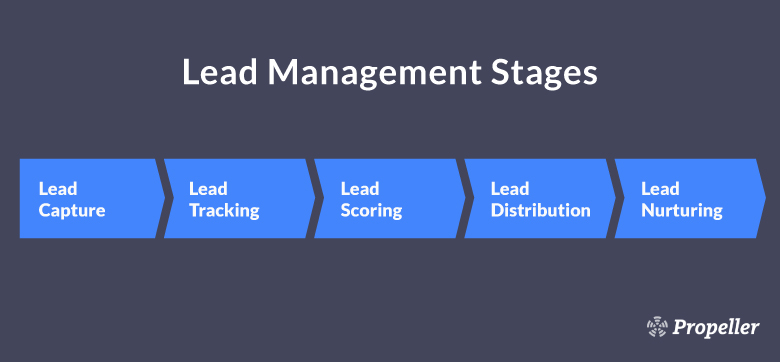Guide to Small Business Automation and Tools
Setting up a small business is an uphill battle as you have limited resources to work with from day 1. Even if you are able to pick up steam, the problem starts as you need to scale. Most often, as a founder or owner of a small business, you probably juggle some of these tasks yourself. As you can’t afford to hire teams for each business function, you are restrained by time and resources. Automation products can help you automate repetitive tasks and use your resources effectively.
This article breaks down the need for automation for small businesses, what processes to automate, and tools to consider to get started.
Why Do Small Businesses Need Automation?
Small businesses need automation more than ever before given the competition in the market. You either have to step up or step aside and small teams are under constant pressure. When you have multiple tasks that have to be juggled by a limited number of hands, eventually, your team is going to crack under pressure. Ultimately, deadlines overrun, tasks pile up, and leads slip through the cracks.
Automation helps businesses scale and grow their businesses while giving a fighting chance to challenge the status quo of big brands and big businesses.
Software automation can help you:
- Build awareness in social media
- Follow up on behalf of your salesforce
- Generate leads with marketing automation
- Take leads through a predictable buying journey
- Automate routine operations
- Reduce the need for data entry
And the good news is, not all automation solutions are designed for mammoth businesses. Many automation products are designed to help small and medium businesses scale rapidly with limited resources and budgets.

Image Courtesy – salesforce.com
What Can Small Businesses Automate?
Lead Qualification
When leads flow through your funnel, you have to evaluate, organize, and nurture leads that will most likely convert into customers. If you are generating a higher volume of leads than you can handle, it can make you lose good customers. Automating lead qualification helps you prioritize leads that are more likely to convert and focus on them first.
Scoring leads based on profile and engagement metrics like company size, page visits, meetings held, etc. help you in qualifying leads. There are several methods for qualifying leads and the most popular strategy is lead scoring.
A small business automation software like Salespanel can help you segment and qualify leads with both automated and rule-based lead scoring. Check out our lead scoring 101 guide here.
The average daily social media usage of internet users worldwide is 145 minutes per day. This means you have to reach out to potential customers wherever they like to spend most of their time.
This doesn’t mean you have to spend huge budgets on social media ads on be active on social media all the time. But, you need to have a brand presence in social media platforms, grow users organically, engage at the right moments, and get more business. This is where automation comes into play.
Managing social media accounts is something that not all small business founders are good at. Social media management can also be time-consuming for small business owners like you who have to focus on more pressing issues. Social media automation tools like Buffer can help you schedule posts and periodically engage your leads.
Email Nurture and Follow-ups
The average salesperson makes only two attempts to reach a prospect. But we all know one or two emails to prospects do not work. In fact, a minimum of five follow-ups are needed before a prospect responds.
Email marketing and outreach are easy strategies to follow that can help you both acquire leads and engage subscribers and customers. When you get them to sign up to your mailing list, they look forward to what your business has to offer and are interested in any new offers or developments. So this is a great way for you to provide updates, as well as share offers, discounts and get revisits on your website.
But while running your business, your limited staff are already multitasking and it is a futile attempt to engage your base manually. Email marketing and outreach can be easily automated using tools like Mailchimp.
Chatbots
Not all your website visitors are customers, but they have arrived at your website after finding you from a marketing channel. Since it’s difficult to gauge the intent of each visitor, setting up a chatbot that can engage with all visitors can help you differentiate your visits and set up responses accordingly.
The chatbot can man your virtual storefront, engaging with visitors in a timely manner, like an around-the-clock salesperson. You can even share relevant content through the chatbot, based on the intent of the visitor, such as ebooks, brochures, case studies, etc. When a qualified lead or a technical support query shows up, those can be routed to a real person.
Meetings
Running a small business involves meeting multiple stakeholders, including potential customers and existing customers. If your salespeople are manually writing to them to check for meeting slots, or setting up google calendar invites without knowing their availability, then a lot of previous time is lost in back and forth.
Many meeting scheduling tools help automate the meeting process and make life simple for small businesses.
Customer Support
Providing quality customer service is key to turning first-time customers into loyal customers. Customers expect your product to be top-notch, and if it’s not, you need to be available 24/7 to address their concerns. But a small business cannot afford a round-the-clock resource to answer queries from customers. Nor do you have to keep customers waiting till your helpdesk agents can get back to them. THis is where an online customer service or help desk really plays a crucial role in understanding the needs of your customers, and providing immediate assistance.
This is also a great way to increase customer retention, as customers trust your service and support based on how they’re treated.
Top 5 Automation Tools for Small Businesses
1. Lead Management
A lead management automation system streamlines parts of your funnel and should help you manage leads across the sales process. If you are using a CRM, it should help your business leads as they progress through the funnel. Tools that can be used are Pipedrive, Salesforce, etc.
A marketing enablement software like Salespanel can also help you connect your marketing to the lead management system. It helps you
- Automatically inject leads and data to CRM
- Identify purchase intent and rank leads according to their likelihood to purchase
- Tracking all of your sales emails and knowing how your prospects are responding to them
- Updating all lead information automatically
- Bringing marketing qualified leads directly into the sales pipeline
2. Marketing Automation Software
Sales is reliant on Marketing to generate leads. In order to get marketing qualified leads (MQLs), you need to track your website, emails, and any kind of outreach. And this is where marketing automation software can help. Salespanel helps run data-driven marketing campaigns as well. So you can gather data on your marketing campaigns and make data-backed decisions while attributing marketing campaigns to revenue.
Some of the ways it helps marketing teams include:
- Capturing leads generated across different marketing platforms in one central database
- Running email nurture campaigns and tracking metrics
- Tracking lead behavior and qualifying leads
Salespanel is more of an automation enabler. You can also try out tools like Hubspot, Marketo, and Zapier.

Image Source: propellercrm.com
3. Customer Support Software
Customer support doesn’t only mean receiving complaints from customers, but also understanding their requirements, and working towards fulfilling them. In fact, good customer service can help you get loyal customers, whereas bad customer service makes them look towards your competitors’ direction.
Automating your customer service helps you solve common queries without involving a human rep. When a complex problem arrives, a rep can take over. A comprehensive helpdesk also reduces the load from your support reps.
One such tool is Zendesk. It is a customer support tool that features a user-friendly multi-channel ticketing system as well as a customer self-service portal. You can also use products like Freshdesk or Crisp.
4. Appointment Scheduling Software
Whether you have a small business or not, automating meeting scheduling with a WordPress booking system or a service scheduler software is beneficial. It additionally helps small businesses automate calendar management and look professional. A good product not only helps you in arranging meetings but also helps you make yourself available to potential leads in a systematic manner and see your employees’ and team members’ appointments to collaborate better.
Calendly is one such tool that helps schedule your appointments effortlessly, view colleagues’ calendars, and avoid timezone clashes.
Trivia: Salespanel integrates with Calendly to let you know who booked meetings from your website and where they came from.
Social media presence has become crucial because the majority of your customers spend time online. Having a social media presence helps you understand the needs of your audience, share relevant content, and build brand awareness. While you can manually post across channels, it takes a lot of time and effort to post consistently and constantly monitor the online sentiment of your brand when you have other pressing tasks.
Buffer is a social media management tool that helps schedule social media posts across different platforms so your marketing team can plan their content accordingly. With Buffer, you can automate content publishing and also monitor engagement metrics for your posts.
It also allows you to collaborate with multiple teams within your organization.
Save Time and Money with Small Business Automation
Every penny matters when you are scaling your small business. Automation plays a crucial role here in helping you save resource expenses, office space, as well as time. The key is to know when your small business is ready to embrace automation and take the leap. Hope the tools listed above are of help to you and help you grow your business.
Sell more, understand your customers’ journey for free!
Sales and Marketing teams spend millions of dollars to bring visitors to your website. But do you track your customer’s journey? Do you know who buys and why?
Around 8% of your website traffic will sign up on your lead forms. What happens to the other 92% of your traffic? Can you identify your visiting accounts? Can you engage and retarget your qualified visitors even if they are not identified?


